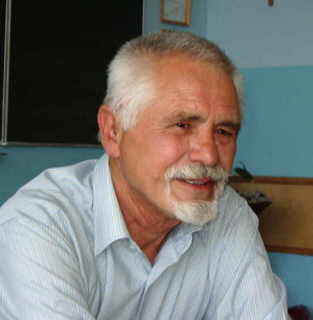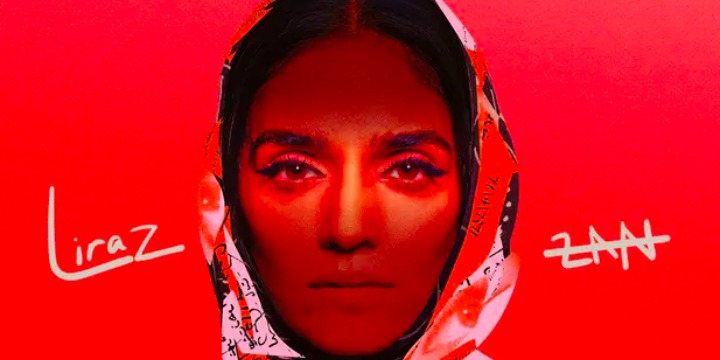 Życie na salonach światowego humanizmu
Życie na salonach światowego humanizmu
Andrzej Koraszewski


Ojciec święty ogłosił encyklikę Fratelli-tutti, o braterstwie i przyjaźni społecznej. Nie ma w niej wzmianki o ludobójstwie chrześcijan w Afryce ani o islamistycznym terroryzmie, ani o zaborczych działaniach Iranu, Turcji czy Rosji. Odnosi się wrażenie, że Ojciec Święty najbardziej obawia się kapitalizmu i darzy głęboką miłością innego wielkiego humanistę, szejka Ahmeda al-Tajeba, który stoi na czele Uniwersytetu Al Azhar i jest najważniejszą postacią w sunnickim islamie. Obaj panowie głoszą miłość i pokój, chociaż al-Tajeb z tym braterstwem jest nieco ostrożniejszy. Można powiedzieć, że islamski humanizm jest nieco bardziej agresywny od tego katolickiego, szejk odmówił uznania Islamskiego Państwa Iraku i Syrii za organizację nieislamską, odmówił prezydentowi Egiptu rewizji nauczania islamu, na temat ludobójstwa chrześcijan milczy bardziej surowo niż Ojciec Święty.
Po tej pełnej braterskiej czułości encyklice strona satyryczna The Babylon Bee opublikowała kpiarski felietonik, z informacją, że Ojciec Święty zadeklarował, iż Kościół katolicki nie będzie więcej przyjmował pieniędzy pochodzących z zysków zgarniętych w kapitalistycznym systemie produkcji.
Humanizm w aranżacji instytucji religijnych jest od pewnego czasu odrobinę podejrzany, więc po pierwszej wojnie światowej miłościwi władcy zwycięskich krajów postanowili utworzyć Ligę Narodów. Miała powstrzymać, jeśli nie wszystkie wojny, to przynajmniej te największe i zapewnić, jeśli nie braterstwo, to przynajmniej redukcję nienawiści. Miały to ułatwić państwa narodowe, tak, żeby narodowe aspiracje nie rozsadzały wielonarodowych imperiów. A jeszcze Narodowy Dom Żydów w Palestynie miał zakończyć ciągłe wykorzystywanie nienawiści do Żydów w podżeganiu nienawiści wszystkich do wszystkich.
Intencje były piękne, ale coś wyszło nie tak.
Po drugiej wojnie światowej zlikwidowano skompromitowaną Ligę Narodów i zastąpiono ją Organizacją Narodów Zjednoczonych, która miała zabezpieczyć ostateczne zwycięstwo demokracji i humanitaryzmu. To ostatnie wymagało własnej konstytucji, wiec spisano Powszechną deklarację praw człowieka, a na jej straży stanęła Komisja Praw Człowieka ONZ. Sędziami wykroczeń przeciw prawom człowieka mieli być przedstawiciele państw członkowskich ONZ wchodzący do Komisji w trybie głęboko przemyślanego i bardzo demokratycznego systemu rotacyjnego.
Komisja Praw Człowieka ONZ istniała przez 60 lat. Ale chyba coś poszło nie tak, bo w 2006 roku, po kilku dziesiątkach lat krytyk, w których przewijało się podejrzenie, że sędziami, którzy mają orzekać o przestępstwach łamania praw człowieka są przedstawiciele państw notorycznie popełniających przestępstwa, o których mają orzekać, postanowiono, że skandal jest już zbyt wielki i trzeba z tym skończyć. Przestępcza wspólnota znalazła metodę pozorowania realizacji celów, dla których Komisja została utworzona i zajmowała się głównie ściganiem łamania praw człowieka przez Żydów, ale żeby nikt nie podejrzewał ich o jakiś antysemityzm, ograniczyli się do Żydów w Izraelu, ścigając ich pod radzieckim hasłem antysyjonizm nie jest antysemityzmem.
Próby starannego zamykania oczu na wyczyny tej Komisji Praw Człowieka trwały przez dobre 30 lat, chociaż niektórzy twierdzą, że znacznie dłużej. Sekretarz Generalny ONZ powiedział basta i zamówiono nowe tablice informujące, że to nie jest już żadna Komisja Praw Człowieka tylko Rada Praw Człowieka, która od teraz będzie uczciwie zajmowała się realizacją celów, jakie niegdyś wyznaczono Komisji. W ciągu kilku miesięcy okazało się, że Rada ze zwiększoną intensywnością kontynuuje tradycje Komisji, a kolejni Sekretarze Generalni okazjonalnie dają do zrozumienia, że chyba coś poszło nie tak. Stany Zjednoczone, które niegdyś zaproponowały utworzenie Komisji Praw Człowieka po dwakroć się zaparły Rady Praw Człowieka i obecnie nie uczestniczą w jej obrzędach potępiania jednego państwa, które rzekomo narusza prawa człowieka.
We wtorek 13 października Zgromadzenie Ogólne ONZ wybrało w tajnym głosowaniu na najbliższe trzy lata 15 nowych strażników praw człowieka. Wśród nowych surowych i sprawiedliwych sędziów oceniających przestrzeganie praw człowieka na świecie znalazły się Chiny, Rosja, Kuba i Pakistan. Ci, którzy interesują się Afryką mogą się troszkę zdziwić widząc wśród nowych strażników praw człowieka przedstawicieli Wybrzeża Kości Słoniowej i Malawi, Amerykę Łacińską w dziedzinie obrońcy praw człowieka reprezentować będzie Meksyk.
Przedstawiciel państwa reprezentuje w Radzie państwo, więc nikt nie oczekuje, że będzie uczciwym i bezstronnym sędzią. W przeszłości wielokrotnie zdarzało się, że wpływały do Rady raporty o drastycznym naruszaniu praw człowieka przez państwa reprezentowane w Radzie, ale tak się jakoś składa, że były nieodmiennie ignorowane.
Mógłby ktoś zapytać co tam robią przedstawiciele krajów demokratycznych. Krótka i uczciwa odpowiedź brzmi: siedzą. Grzecznie zatwierdzają rezolucje proponowane przez państwa bandyckie, robią dobrą minę do złej gry i patrzą niechętnie na ludzi mówiących, że ta Rada Praw Człowieka Organizacji Narodów Zjednoczonych jest instytucją zajmującą się ukrywaniem i zamazywaniem zbrodni przeciw prawom człowieka.
 Andrzej Koraszewski
Andrzej Koraszewski
Publicysta i pisarz ekonomiczno-społeczny
Ur. 26 marca 1940 w Szymbarku, były dziennikarz BBC, wiceszef polskiej sekcji BBC, i publicysta paryskiej „Kultury”.
Zawartość publikowanych artykułów i materiałów nie reprezentuje poglądów ani opinii Reunion’68,
ani też webmastera Blogu Reunion’68, chyba ze jest to wyraźnie zaznaczone.
Twoje uwagi, linki, własne artykuły lub wiadomości prześlij na adres:
webmaster@reunion68.com




